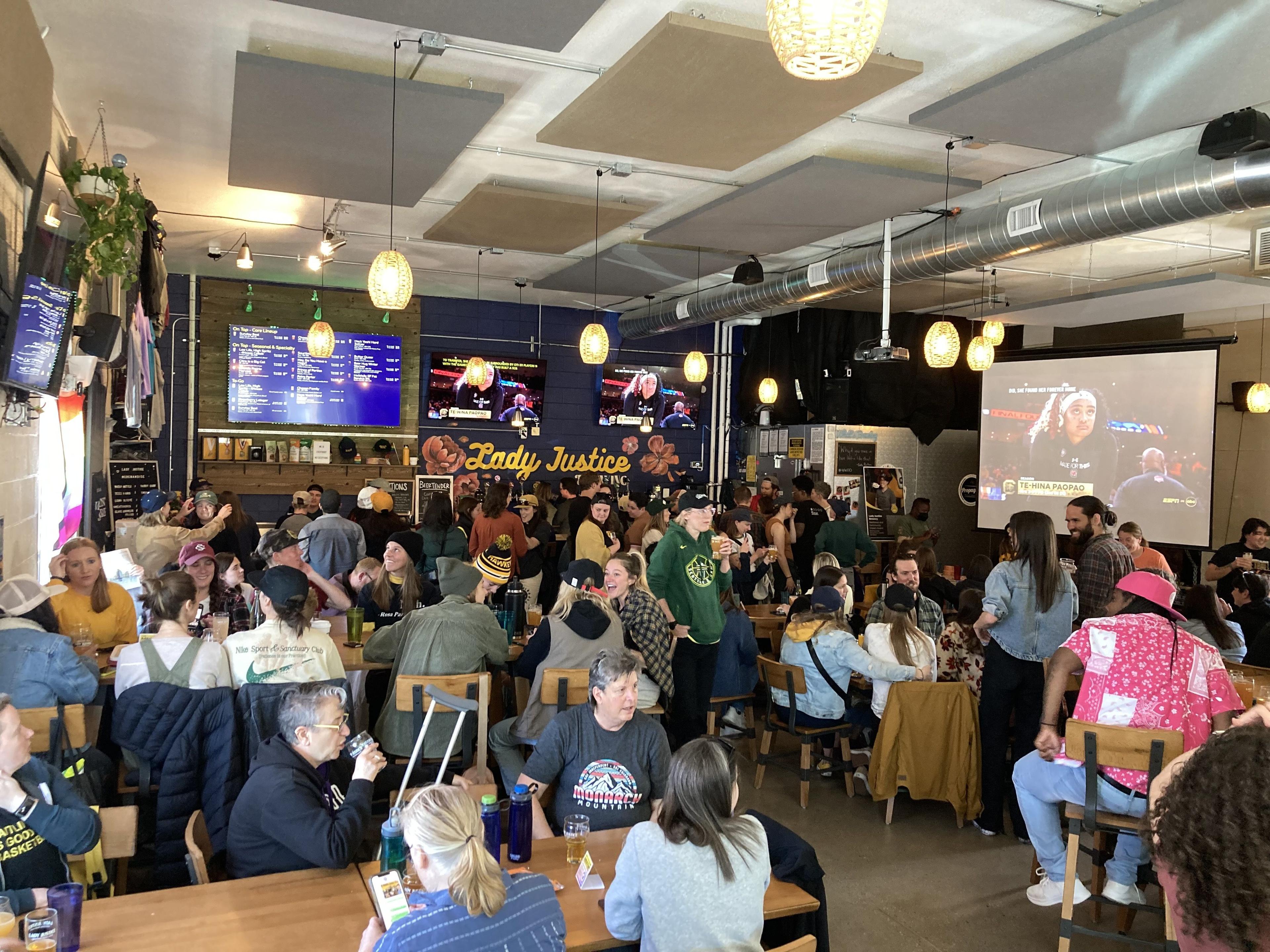In 2018, Denver voters approved a 0.08% sales tax to create the Prosperity Denver Fund. It reimburses local nonprofits that give out college scholarships to low-income students in Denver.
But since its creation, the program meant to help students in need attend college has only distributed around 40% of the money raised.
According to Prosperity Denver CEO Matt Jordan, families that would benefit continue to get priced out of Denver proper, meaning they are no longer eligible for scholarship dollars based on residency requirements.
Lorii Rabinowitz is the CEO of the Denver Scholarship Foundation, which provides college advising and scholarships to Denver Public School (DPS) students. She said that of the 125 students in this year's incoming class, 20% could not qualify for reimbursement through the Prosperity Denver Fund, despite spending an average of more than 10 years at DPS schools.
"We have seen a significant number of students and families displaced... based on affordability, housing affordability specifically," she told City Council in April. Rabinowitz added that the current program was also inaccessible to students experiencing homelessness.
On Monday, City Council approved changes to the program to broaden eligibility for students.
Previously, students needed to live in Denver for 36 months before attending postsecondary education to qualify. Now, students up to age 25 only need to graduate from a DPS high school or live in the city six months before attending higher education.
The program also widens eligibility from age 25 to age 30. Students in that age range must have lived in Denver for at least six months before enrolling in postsecondary education. Jordan said people aged 25 to 30 are one of the fastest growing groups attending post-high school education.
Another major change includes how partner nonprofits can spend money from the fund. The new bill allows nonprofits to pay for academic advising, career development and financial aid planning, and includes apprenticeships, teacher certification programs and certain postsecondary nonprofit programs.
City Council passed the changes 11 to 2, with Councilmembers Kevin Flynn and Jolon Clark voting no.
Flynn said he felt the changes went beyond the scope of what the voters approved, and that he thinks the changes should instead go back to the ballot.
"This, in my review, is a substantial expansion of a recently passed citizen initiative well beyond what was approved by the voters," he said.
Clark expressed concerns about the residency changes. Because of the way school choice works, some students from Denver suburbs can attend DPS schools without ever living in Denver proper, which would be outside the ballot measure's mandate.
In response, Jordan said that more than 90% of DPS students live in Denver, and that asking for specific addresses introduces a difficult barrier for the most vulnerable students.
"We're excited to be able to leverage the funds to serve more young people in our community," Jordan said Monday after the bill passed.
Council received more than a dozen letters from partner organizations that work with Prosperity Denver in support of the changes, including from Emily Griffith Technical College and Metropolitan State University.
Many partner nonprofits wrote that the bill would help them serve more students looking to attend postsecondary education, especially housing insecure students and immigrants without legal residency documents going back years.
Ednium: The Alumni Collective, which represents DPS alumni under the age of 30, wrote in a letter to Council that DPS grads want more accessible pathways to apprenticeships and training programs for people who do not thrive in traditional academic settings. The group also wrote that many low-income DPS alumni are getting priced out and want to pursue postsecondary education a few years after graduation, once they have a better sense of their interests.
"As alumni explore they find this passion but are often stifled in their pursuit because they do not have access to the financial support necessary to attain a post secondary credential as they age out of most scholarship program criteria," wrote Ednium Director TeRay Esquibel. "As a result, Alumni in this situation often feel abandoned by the existing system."
The changes could also help nonprofit partners training people in the trades.
Brian Cook, executive director of the Construction Education Foundation that runs apprenticeships for people going into the construction industry, said the changes would allow certain programs his organization runs to be included in the Prosperity Denver Fund, and that the amended residency requirements would help serve his most vulnerable students.
Cook said the average age of his students are 28 years old, so the age increase from 25 to 30 would improve accessibility as well.
"It's a great way to make a living if you enjoy building, but there's a stigma for our industry, and so the foundation really is kind of trying to break down those stigmas of a career in construction," he said.
While City Council approved the changes, there's a sense among stakeholders that Colorado is not doing enough to support students and fund higher education.
Since May of 2020, the Prosperity Denver Fund distributed $20.8 million through 7,500 scholarships, 90% of which went to students of color and 80% of which went to first-generation college students. Even with the expanded eligibility, which will increase the number of students served, those grants only come out to around $2,800 per person-just a drop in the bucket given the rising cost of postsecondary education.
From some City Councilmembers' vantage point, the state needs to put up more funding support for students. Colorado higher education leaders also called for more funding in a January letter sent to Gov. Jared Polis.
"As a state, we continue to be abysmal in our funding of education and mental health," said Councilmember Paul Kashmann in committee. "We've got to do better."
Councilmember Robin Kniech, who cosponsored the bill with Councilmember Stacie Gilmore, said in committee that these smaller fixes to the fund are important. But added that the state needs to do more, and that Denver should also consider larger scholarship amounts.
"Our youth deserve these dollars to be funding them now, but that doesn't mean that I'm sure that we have the exact right model forever, and I don't want anything about this bill to make us assume that we have it right," she said.
Editor's note: This story has been updated to include the full name of Ednium: The Alumni Collective.













